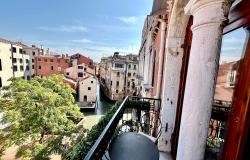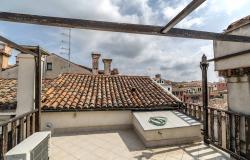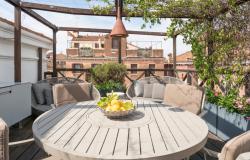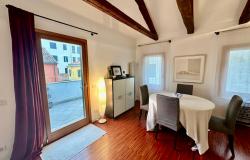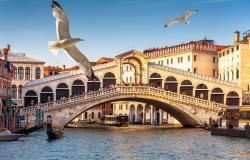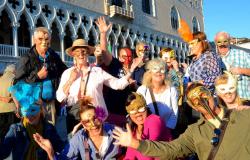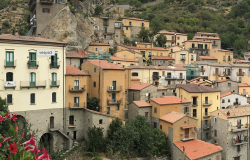For five years, restorers worked on the mosaics on the dome of the narthex, the entrance to St. Mark’s Basilica, Venice’s most famous monument. The mosaics, the most ancient of the basilica, were at risk of detaching from their wall support and were therefore consolidated, then cleaned.
Made over a long period of time, between 1094, the year the Basilica was dedicated to St. Mark, the patron saint of Venice, and 1545, the mosaics depict the Virgin and Child, the four evangelists, eight apostles, and St. Mark in papal attire. They were probably started by Greek mosaicists, and later carried on by local craftsmen.
The golden mosaics inside St. Mark’s are among the Basilica’s highlights, covering 4,000 square meters. In this splendid setting, some of the most memorable events in the history of Venice, and the Western world, took place: in 1177, pope Alexander III met with emperor Frederick Barbarossa after the Battle of Legnano; in 1201, soldiers coming from all of Europe on their way to the fourth Crusade met right in the Basilica.
St. Mark’s Basilica was everybody’s church: people gathered here in times of celebration, and also in times of danger (they took refuge in 1797 during the Napoleonic invasion of the city).
The building was erected in the 9th century, after two Venetian merchants brought to Venice the remains of St. Mark, who was already venerated because he had been the first evangelizer of the area. To honor his remains, a church was built, which, over time, grew larger, more beautiful and increasingly important.
St. Mark’s Basilica is one of the most famous examples of Byzantine architecture in Italy. It has a large dome at the center and four smaller ones on the arms; the façade, also decorated with beautiful mosaics, features five portals; above the central one are four bronze horses.
Restoration work will now continue on mosaics adjacent to those in the narthex.
Don't miss our Guide to Visiting St. Mark's Square in Venice.

